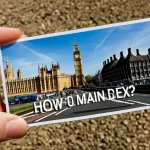Essential Preparation Before Arriving in the UK
Planning your travel to the UK requires attention to crucial details to avoid common pitfalls. One of the most frequent UK travel mistakes involves inadequate visa preparation—ensure you understand the specific visa requirements well ahead of your trip. Applying for the correct visa type avoids delays and ensures smooth entry.
When it comes to booking, double-check your flight and accommodation dates. Errors in reservations can disrupt your entire itinerary. Also, gather all key documents—passport, visa, travel insurance—and keep digital copies handy. For currency, it’s wise to exchange some pounds sterling in advance or know the locations of ATMs to ease transactions on arrival.
Also read : Is It Possible to Explore UK Tourism on a Tight Budget?
Familiarity with the UK’s geography can enhance your travel experience. The UK’s weather varies, so packing layers is essential regardless of the season. Rain is frequent, so a waterproof jacket is recommended. Be prepared for regional differences, as Scotland’s climate differs significantly from southern England.
By addressing these practical aspects—visa requirements, documentation, currency planning, and weather readiness—you minimize travel stress and enjoy a seamless visit to the UK. Understanding what to know before traveling UK is your first step toward a confident and well-prepared journey.
Also to see : How Can You Maximize Savings on Your Next Trip to the UK?
Navigating UK Transportation Efficiently
Understanding the distinctions between the train, Tube, and bus systems is essential for smooth UK travel. The train network connects cities and regions with varying schedules, while the Tube is a rapid transit system serving London’s metropolitan area, and buses cover local routes in towns and cities.
Many travellers face confusion around payment methods, especially with the Oyster Card and contactless payments. The Oyster Card is a prepaid smart card primarily for London’s public transport, offering daily caps and discounted fares. Contactless payments using debit or credit cards provide similar benefits but may lead to unexpected charges if not monitored carefully. Misunderstandings often occur regarding fare zones and peak times, leading to overpayment or fines.
For those considering vehicle rental, remember the UK drives on the left side, which can be challenging for international drivers. Familiarize yourself with the rules and signs before hitting the road, and note that parking and toll regulations vary widely.
By grasping these key points, travellers can avoid common transportation mistakes in the UK and optimize their journey efficiently.
Adapting to British Etiquette and Social Norms
Understanding UK manners is essential for smooth social interactions. One of the most prominent aspects is queueing. Brits prize orderly queues and view jumping the queue as rude. Patience while waiting is expected, so respecting this custom shows good British etiquette.
When it comes to politeness, phrases like “please,” “thank you,” and “sorry” are used frequently—even in casual exchanges. This politeness is part of British etiquette and helps maintain harmony in social settings.
Tipping is another key area where cultural differences in the UK arise. In restaurants, it’s customary to leave around 10-15% if service is not included. For taxis and hairdressers, a small tip is appreciated but not mandatory.
Interacting with locals often begins with a polite greeting—typically a handshake or a simple “hello.” Small talk about the weather or local events helps build rapport without appearing intrusive. People appreciate respect for quiet zones such as libraries or public transport, where loud talking is frowned upon. Maintaining personal space is also crucial; invading it may make British hosts uncomfortable.
Respecting these nuances ensures positive connections and enriches one’s experience of UK culture.
Money Matters and Avoiding Currency Confusion
Get to grips with UK currency and spend smartly
Understanding UK currency is essential for any traveller to avoid costly mistakes. The UK uses British pounds (£), with coins ranging from 1p to £2, and notes in denominations of £5, £10, £20, and £50. Recognising UK coins and notes ensures you won’t hesitate when paying or receiving change.
When deciding between debit/credit card usage versus cash, consider convenience and fees. Cards are widely accepted across the UK, especially contactless payments. However, some small shops and markets still prefer cash. Carrying a small amount of money in UK coins and notes can help for these occasions.
To avoid ATM and exchange rate pitfalls, researchers should withdraw cash from UK ATMs that offer competitive rates rather than exchanging currency at airports. Some cash machines may charge high fees or provide poor exchange rates. Using a card that offers no foreign transaction fees can be a smart choice. Check with your bank before travelling to understand fee structures and alert them about your trip to prevent card blocks.
By understanding using money in UK wisely and avoiding common money mistakes UK travellers make, you can save money and make transactions smoother throughout your visit.
Essential Tips for Dining and Accommodation
Helpful insights for a smooth UK experience
When visiting the UK, mastering UK restaurant tips can greatly enhance your dining experience. Booking in advance is often essential, especially for popular restaurants or during peak times. Many establishments expect guests to have reservations, which helps avoid long waiting times. Upon arrival, table service is the norm, so waitstaff will usually take your order at the table rather than at a counter. When paying, it’s customary to ask for the bill (“the cheque”)—self-service at the table is rare outside casual cafes.
Understanding food etiquette UK extends to pub culture. Pubs frequently do not have table service; customers order drinks and simple meals directly at the bar. It’s polite to wait your turn and be clear when ordering. Tipping is appreciated but not mandatory; around 10% is standard if service is good.
For accommodation, savvy travelers should heed UK hotel advice by checking for hidden fees, such as city taxes or charges for extra amenities. It’s advisable to confirm cancellation policies before booking. Also, many hotels expect early check-ins to be requested in advance. Keeping these tips in mind ensures your UK stay is both comfortable and hassle-free.
Making the Most of Sightseeing and Attractions
When planning your UK sightseeing tips, pre-booking tickets for popular tourist attractions UK is essential. This strategy saves time by bypassing long queues, especially in iconic sites like the Tower of London or Edinburgh Castle. Many attractions offer online booking options that also provide discounted rates, making it both time- and cost-effective.
Understanding differences in opening hours and public holidays is another crucial aspect. In the UK, many attractions close earlier on weekends or have altered schedules during bank holidays. Checking official websites beforehand ensures you won’t arrive to find an unexpected closure, which is a common setback for visitors unfamiliar with UK holiday patterns.
To avoid common tourist traps UK, research is key. These traps often involve overpriced eateries or souvenir shops clustered around major sites without authentic value. Opt instead for local recommendations or hidden gems that preserve the experience without inflating costs. By staying informed and prepared, your sightseeing will be more rewarding, allowing genuine engagement with the culture and history on offer.











